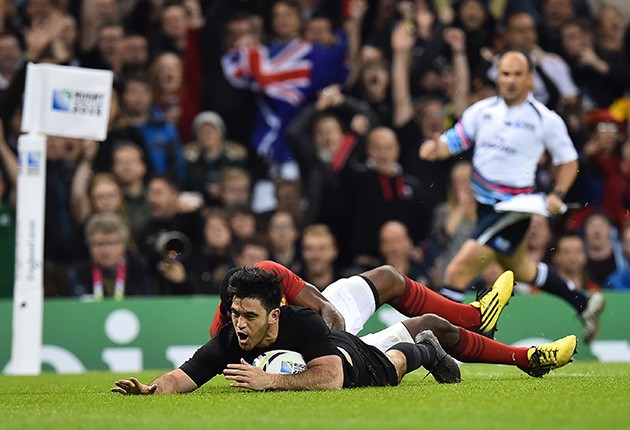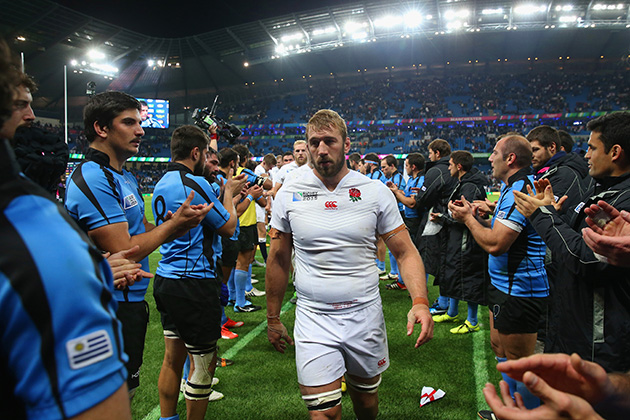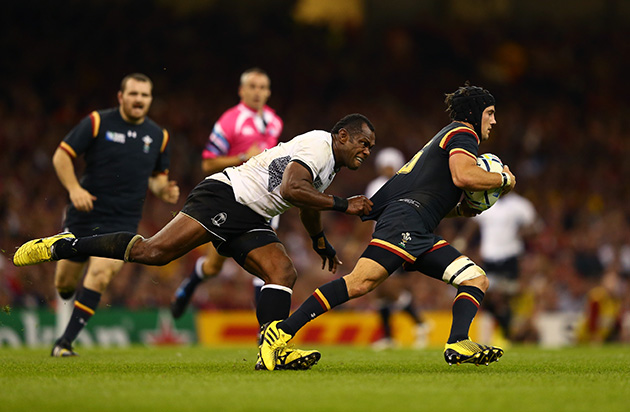What are the big issues arising from the weekend's World Cup quarter-finals?
North v South
So it’s an all southern hemisphere semi-final line-up, France and Ireland outclassed by New Zealand and Argentina, Wales pipped by South Africa and Scotland exiting after a controversial late Australia penalty. So the wait for another World Cup winner from the North goes on.
It was said before the tournament that northern hemisphere teams would benefit from playing in familiar conditions, but as it’s happened the weather gods have shined on RWC 2015 and the fair skies mean the southern sides have been able to play with their usual flair and speed. That was certainly true of the All Blacks and the Pumas in Cardiff, both sides showing impressive skill levels from one to 15 and attacking space rather than seeking contact – a common flaw in northern tactics.
So what needs to change? The biggest thing for me – and this isn’t a result of the World Cup but a concern that has grown over recent years – is that players are playing too much rugby. It’s fantastic that there are such strong club competitions but the fixture lists at both domestic and particularly international level need to be cut. Player welfare must be ranked ahead of bolstering the coffers. Make the season less of a slog and allow players time to recuperate, to make sure the basic enjoyment of the game remains.
Autumn Internationals should be limited to three, so no Tests outside the international window. And one of those matches should be against a Tier Two nation. Get rid of the LV= Cup – the A league does the job of bringing through young talent – and reduce the number of matches top players are allowed to play from 32 to 25.
Bigger isn’t always better
Size matters. Or so we’re often let to believe by coaches, particularly in the northern hemisphere. Yet look down the back-lines of the four World Cup semi-finalists and you won’t find too many rugby giants.
Yes, there is a place for your Jamie Roberts and Robbie Henshaws, your Tim Vissers and George Norths – but big isn’t the only route. It’s about balance.
Nehe Milner-Skudder uses his feet to outfox people while on New Zealand’s other wing Julian Savea is more about power. Conrad Smith and Matt Giteau use their guile to make the right decisions while alongside them in midfield are more direct runners in Ma’a Nonu and Tevita Kuridrani. Nicholas Sanchez, at 5ft 9in, is maybe the most underrated fly-half in the world while 14st 1lb Willie le Roux gives South Africa a different dynamic compared to his bulky team-mates.
Yet in Europe the little men are often overlooked, defensive weaknesses often cited. Look at the damage Matthew Morgan wreaked against Fiji – they might not have been the best tactics against the islanders but would certainly have given the Boks something to think about on Saturday if unleashed from the bench. Instead of the nimble, fleet-footed full-back, Wales opted for two similar fly-halves as replacement options.
Christian Wade’s ability to sidestep opponents cannot be taught but tackle technique and defensive positioning can. Rather than overlook him for a flaw, think of what he can bring in attack – and coach him about defence.
Let’s embrace players for what they do well and work on their weaknesses rather than discarding people. Too often defensive ability, not attacking threat, is the deciding factor. Be positive, rather than negative in selections.
Ref justice
It’s an unfortunate situation where all the outstanding rugby of the weekend has been overshadowed by a refereeing error at the end of Australia v Scotland, an error that cost the Scots a famous win.
First, I’m in total agreement about the need to respect referees and officials – we wouldn’t have a game without them and some of the vitriol spouted in recent days is completely unnecessary. However, I think Craig Joubert should have shown more respect to the players and stayed to shake their hands at the end of the game rather than running off.

Tough blow: Craig Joubert awards the deciding penalty in the Australia-Scotland game. Photo: Getty Images
Second, I’m not sure how World Rugby’s decision to put out a statement saying Joubert got that last-minute decision wrong helped anyone. Joubert will have felt a lack of support from his bosses – every ref has their match reviewed but he’s the only one who’s had a mistake confirmed, a mistake already outlined by most media outlets. Scotland will feel even more aggrieved at the result and Australia’s tournament will now be tarnished. Should they go on and lift the Webb Ellis Cup people will forever argue they shouldn’t have been in the semi-finals.
So what can rugby learn from this fiasco? Referees make mistakes in games – they are mere human beings after all and I’m sure the Wallabies disagreed with a few decisions on Sunday too – so it’s important to minimise them.
The key learning rugby should take from the events at Twickenham is that a referee should be able to use common sense in calling for the TMO. I know there’s been a lot of talk about the overuse of the TV officials during this tournament and the time it takes can be an issue, but when the incident is likely to decide who wins and loses a World Cup quarter-final surely it makes sense to use the technology? Joubert looked concerned about the call as he watched replays on the big screen and maybe he should have taken a few moments to check. It’s not in the protocols but would World Rugby have hung him out to dry in the same way had the call resulted in the correct decision?
As always, plenty for the lawmakers to ponder.
Pumas’ panache
Argentina have been playing in the Rugby Championship for four years – and, boy, is it evident in how they play.
In 2007 they reached the World Cup semi-finals with their traditional powerful pack and an accurate, if at times dull, kicking game. This year they have reached the last four with an all-court style. Some of their play on Sunday lunchtime was reminiscent of the All Blacks on the same pitch the previous night. Juan-Martin Fernandez Lobbe dummied and then produced the perfect offload to set up Juan Imhoff for his second try – it’s hard to think of many northern hemisphere forwards who could do that.
Having a Super Rugby team from next year will only help them more, as it will for fellow newbies Japan. And surely the progress of Argentina demonstrates the need for the northern hemisphere to be more welcoming of other nations. Rugby World has long argued for promotion/relegation between the Six Nations and the European Nations Cup (ENC).
Yes, there are isues with the calendar at the moment – the ENC is played over two years rather than one – but it must be looked into now. It took four years for Argentina’s RWC 2007 performance to be rewarded with a place at rugby’s top table – now let’s look at bringing in Georgia and Romania. If a straight one up, one down is too much of a concern for the Six Nations, how about a play-off between the bottom team in the table and top ENC side?
At the very least, England Saxons should head to Tbilisi to play a match. And they shouldn’t worry about crowds – 40,000+ often turn up to watch Georgia. Imagine how much better Georgia will get with more top-quality fixtures.
For those concerned about the financial impact on, say, Scotland should they be relegated one year, perhaps the two tournaments should all come under the Six Nations umbrella with funds shared among all involved so unions’ bank accounts aren’t too severely hit.
Come on folks, let’s be a little more inclusive rather than exclusive.
For the latest Rugby World subscription offers, click here.









